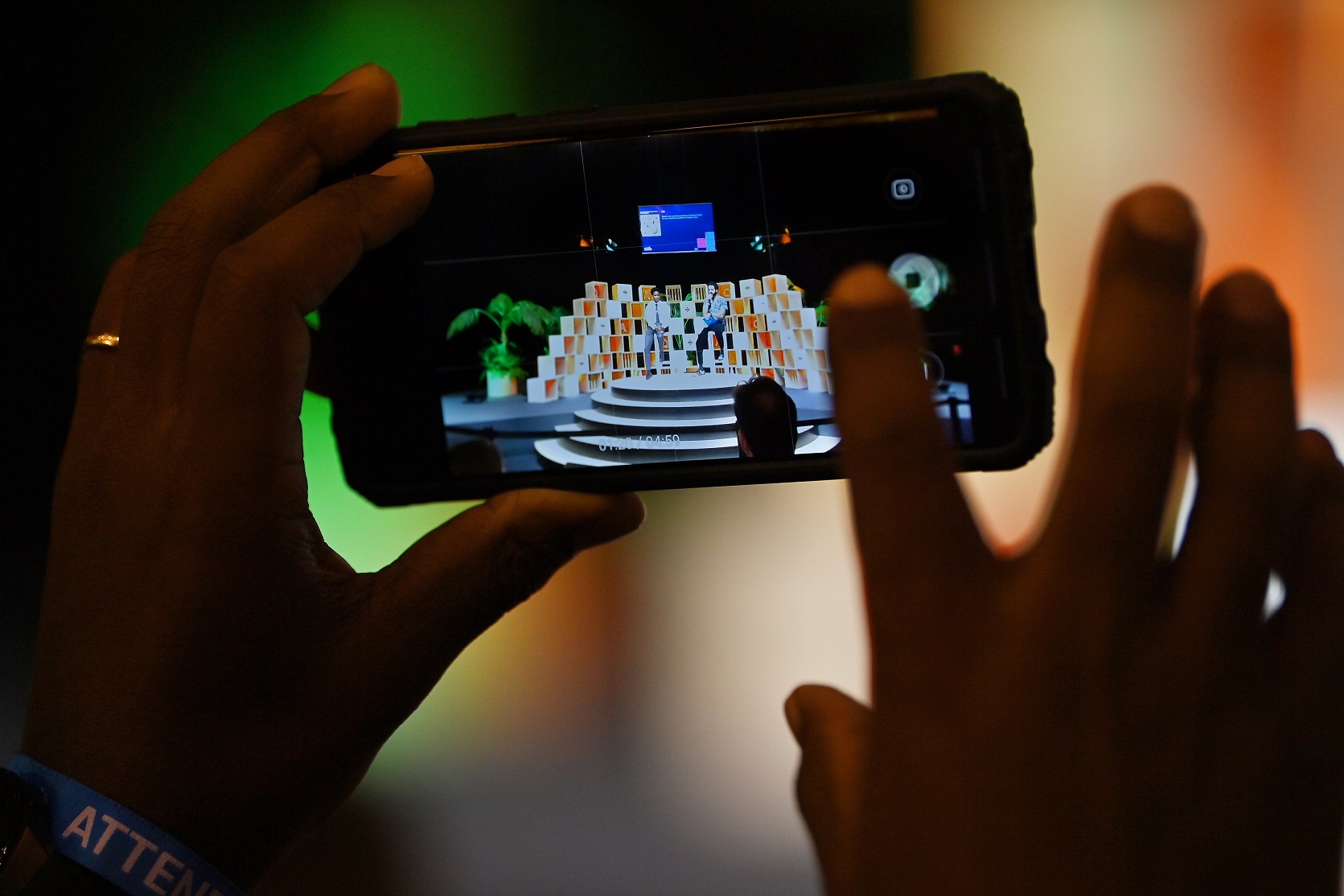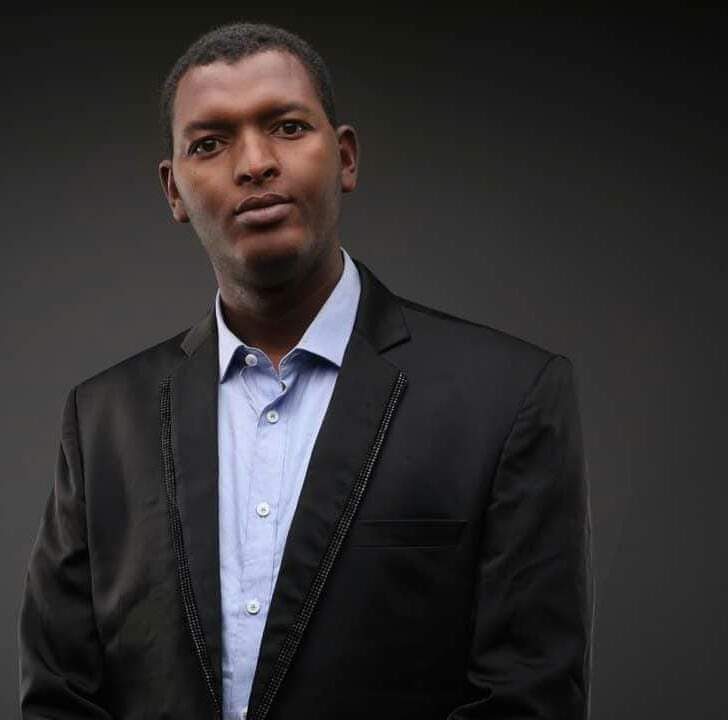"وسائل الإعلام هي الكيان الأقوى على وجه الأرض .. لديه القدرة على جعل المذنب بريئا، وجعل الأبرياء مذنبين، وهذه هي السلطة لأنها تتحكم في عقول الجماهير". هكذا وصف الزعيم الإفريقي مالكوم إكس تأثيرات الرسالة الإعلامية على القضايا المجتمعية.
تختلف طبيعة الصراعات باختلاف المناخ السياسي والإعلامي من دولة لأخرى. وبالتالي لا يمكن تحقيق السلام في النزاع السياسي، في ظل غياب سلطة الصحافة التي تحفز الحل السلمي للنزاع، بتسليط الضوء على نقاط الالتقاء بين الفرقاء حينا، كما أنها يمكن أن تكون مشعلة للحروب بالتحريض على العنف.
هنا تبرز أسئلة مهمة: ما هو خطاب الكراهية؟ كيف يؤثر على الأزمة السياسية؟ وما هي مرتكزات صحافة السلام؟
تذهب الأمم المتحدة في تعريفها لخطاب الكراهيّة ضمن استراتيجيتها الأخيرة إلى أنه "أي نوع من الاتصال، سواء بالقول، أو الكتابة، أو الفعل، يستخدم لغة تمييزية تحقيرية عند الإشارة إلى شخص أو مجموعة على أساس الهويّة".
تأثيرات الخطاب الإعلامي
عند الحديث عن خطاب الكراهية لا بد من التركيز على التجربة الإفريقية باعتبارها منطقة ملتهبة بالصراعات السياسية، ففي الفترة التي سبقت الانتخابات الرئاسية في تشاد العام 2021، حرصت السلطة العليا للإعلام السمعي البصري (HAMA)على ضبط الخطاب الإعلامي بإعداد مدونة خاصة ركزت على تكافؤ الفرص في الدعاية الإعلامية؛ إلا أن ذلك لم يمنع خصوصا وسائل الإعلام الخاصة والرقمية، من ممارسة نشاطها المعتاد، إذ إن معظمهما محسوب على بعض الأحزاب السياسية والتجمعات المدنية، التي أعلنت مقاطعة الانتخابات عقب مقتل والدة أحد المنافسين للرئيس الراحل إدريس ديبي، الأمر الذي دفع الكثير من المترشحين للانسحاب من السباق الرئاسي.
في نيجيريا كان التحضير للانتخابات العامة للعام 2015، مثيرًا للقلق بسبب الخطاب الإعلامي الذي أثر سلبا على الانتخابات السابقة، حيث ورد أن حوالي 800 شخص لقوا مصرعهم في أعمال عنف مرتبطة بالانتخابات. والأمر نفسه حدث في كينيا، حيث خلقت عناوين الصحف الكينية والأغاني التي تم بثها في الفترة التي أعقبت الانتخابات إحساسا باليأس لدى الشعب الكيني، وأعطت الانطباع بأن الأمة قد وصلت إلى نقطة الغليان. على سبيل المثال، فإن صحيفة ديلي نيشن الصادرة في فبراير/شباط 2008 كان عنوانها الرئيسي: جمهورية كينيا كانت قذيفة محترقة مشتعلة، فيما بثت راديو بحيرة فيكتوريا، أغنية وصفت فيها الحكومة بأنها تقود قرود البابون. خلّف هذا الخطاب موجة أعمال عنف أسفرت عن مقتل أكثر من 600 شخص وهدم المئات من المنازل.
شهدت زيمبابوي هي الأخرى موجة غضب شعبي عارمة أثناء الانتخابات البرلمانية 2008، بسبب تصنيف حركة التغيير الديمقراطي بأنها حركة معادية من قبل وسائل الإعلام التي تسيطر عليها الحكومة.
وكان للإعلام الرواندي دور كبير في الإبادة الجماعية بحسب الباحث الصحفي مصطفى الشامي، المقيم في كيغالي، الذي قال في حديثه لمجلة الصحافة: "باع الصحفيون أنفسهم للدولة وكبار رجال الأعمال ممن يحرضون على الإبادة، وكان من بين هؤلاء حسن انجيزي، الذي كتب الوصايا العشر للهوتو، تضمنت أن الهوتو الصالحين يجب أن لا يتكلموا ولا يعاشروا ولا يصادقوا ولا يثقوا بالتوتسي. ونشرت صحيفة "كانغورا" التي تسيطر عليها جماعة الهوتو هذه الوصايا. هكذا استمر الإعلام في تعبئة الهوتو، إلى أن سقطت طائرة الرئيس في ليلة السادس من أبريل/نيسان العام 1994، ونادت إذاعة "الألف تلة" في الهوتو، حي على القتال فقد اُغتيل رئيسكم على يد الصراصير".
صحافة السلام
يختصر الأكاديمي النرويجي يوهان غالتونغ تعريفه للسلام في غياب الصراع، ويتابع بأنه يتصف بظروف تزدهر فيها العدالة والإنصاف والوئام.
أما جاك لينش وأنابيل ماكغولدريك، في كتابهما Peace Journalism define فيتفقان على أن صحافة السلامة هي "التي تتحدى التغطية الإعلامية الشعبية باختيارات دقيقة للمحررين والمراسلين، تخلق فرصا للمجتمع ككل، للنظر في ردود الفعل العنيفة على النزاع".
ويستطرد مركز صحافة السلام العالمي بجامعة بارك في باركفيل بولاية ميسوري في تفصيل التعريف ذاته بأن صحافة السلام تركز على تحسين آفاق السلام. من خلال القصص الصحفية التي تخلق جوًا يفضي إلى السلام ويدعم مبادراته وصانعيه، دون المساس بالمبادئ الأساسية للصحافة الجيدة.
مرتكزات صحافة السلام
نشرت الباحثة الكينية في جامعة نيروبي، جاسينتا ماويو، دراسة ركزت فيها على الدور الإيجابي لراديو المجتمع في ترسيخ السلام خاصة إذاعة (Pamoja FM) و(Koch FM) و(Waumini).
وخلصت دراستها إلى أن هذه الإذاعات بثت قبل وبعد انتخابات العام 2013 رسائل سلام عابرة من خلال مسرحية إذاعية أطلق عليها Gutuka تعني بالسواحلية "الاستيقاظ" بهدف تعزيز السلام وتهيئة الأجواء للمصالحة بين الفرقاء.
في سياق الحديث عن المرتكزات لا بد من الإشارة إلى عناصر التغطية الإعلامية لصحافة السلام:
الاستباقية: القدرة على الاستجابة السريعة ودراسة أسباب الصراع، وقيادة المناقشات نحو حلول مستدامة.
تجنب الدعاية: المراسلون يرفضون الدعاية لأي طرف، ويبحثون عن الحقائق من جميع المصادر.
التوازن: توزيع الفرص بين أطراف النزاع بطريقة متساوية.
العمق والسياق: التركيز على العمق والسياق، بدلا من تقديم روايات سطحية ومثيرة للعنف والصراع.
الدقة: يختار صحفيو السلام الكلمات التي يستخدمونها بدقة ويحللونها بعناية.
الصورة: حيث تعادل ألف كلمة، انحراف الصورة عن مسار السلام قد يؤدي إلى تفاقم الأزمة من جديد.
تعتبر منظمة PJF أولى المبادرات الإفريقية المناصرة لصحافة السلام في شرق إفريقيا بأوغندا تحديدا، تأسست العام 2011 بهدف تعزيز ممارسات صحافة السلام بين الصحفيين في المنطقة من خلال التدريب والتوعية ضد العنف.
مؤخرا قبل شهرين في منطقة وسط إفريقيا برز اسم اتحاد صحفيي دول الساحل كمبادرة صحفية إفريقية تهدف إلى دعم جهود السلام في المنطقة، من خلال تعزيز وتطوير القدرات المهنية للصحفيين من دول الساحل.




















![Palestinian journalists attempt to connect to the internet using their phones in Rafah on the southern Gaza Strip. [Said Khatib/AFP]](/sites/default/files/ajr/2025/34962UB-highres-1705225575%20Large.jpeg)




















